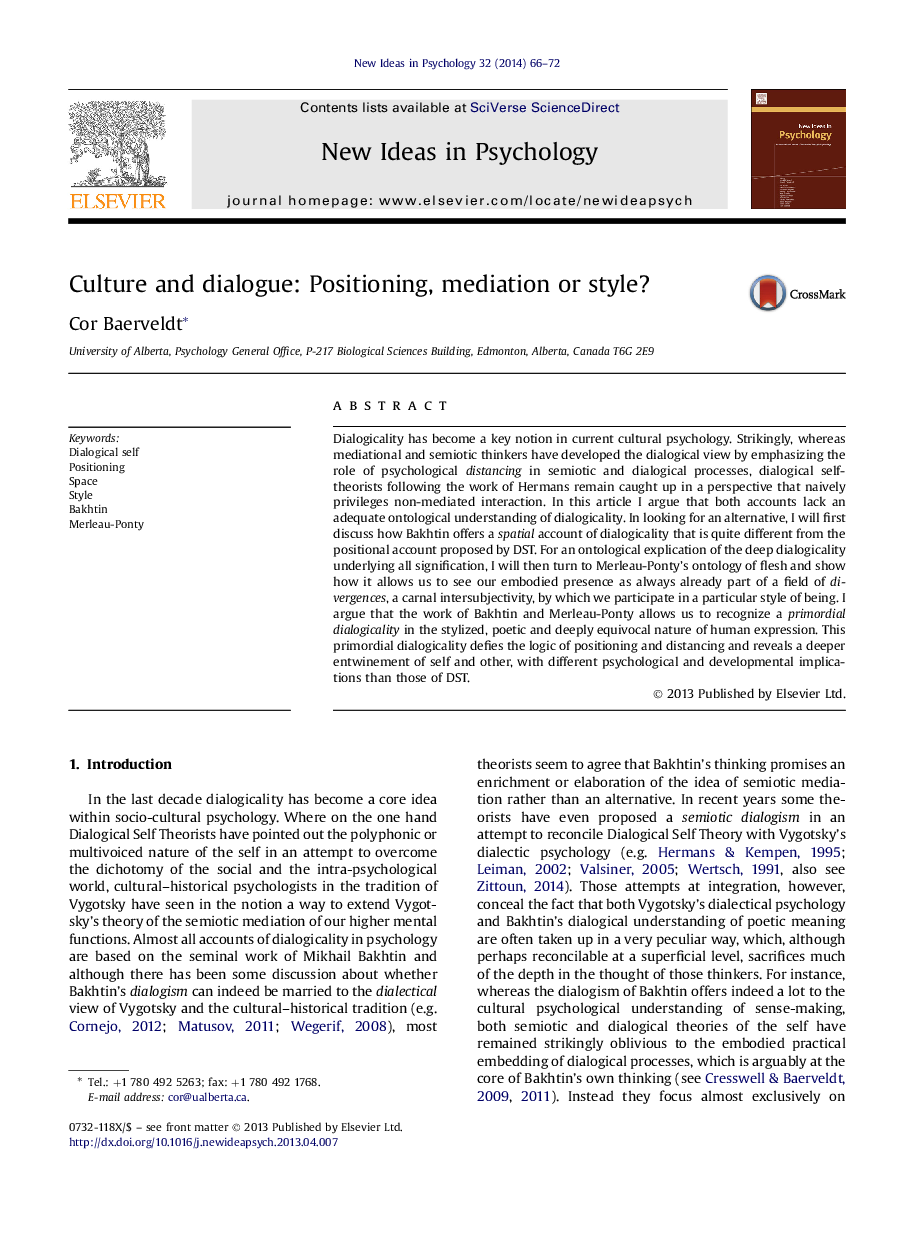| Article ID | Journal | Published Year | Pages | File Type |
|---|---|---|---|---|
| 331529 | New Ideas in Psychology | 2014 | 7 Pages |
•Dialogical Self Theory favors a conception of dialogue as semiotically mediated spatial positioning.•This conception is based on an inadequate understanding of embodied spatial relations.•Bakhtin and Merleau-Ponty offer an alternative spatial understanding of dialogicality.•Following them I propose an understanding of dialogicality as generative juxtaposition and stylized expression.
Dialogicality has become a key notion in current cultural psychology. Strikingly, whereas mediational and semiotic thinkers have developed the dialogical view by emphasizing the role of psychological distancing in semiotic and dialogical processes, dialogical self-theorists following the work of Hermans remain caught up in a perspective that naively privileges non-mediated interaction. In this article I argue that both accounts lack an adequate ontological understanding of dialogicality. In looking for an alternative, I will first discuss how Bakhtin offers a spatial account of dialogicality that is quite different from the positional account proposed by DST. For an ontological explication of the deep dialogicality underlying all signification, I will then turn to Merleau-Ponty's ontology of flesh and show how it allows us to see our embodied presence as always already part of a field of divergences, a carnal intersubjectivity, by which we participate in a particular style of being. I argue that the work of Bakhtin and Merleau-Ponty allows us to recognize a primordial dialogicality in the stylized, poetic and deeply equivocal nature of human expression. This primordial dialogicality defies the logic of positioning and distancing and reveals a deeper entwinement of self and other, with different psychological and developmental implications than those of DST.
